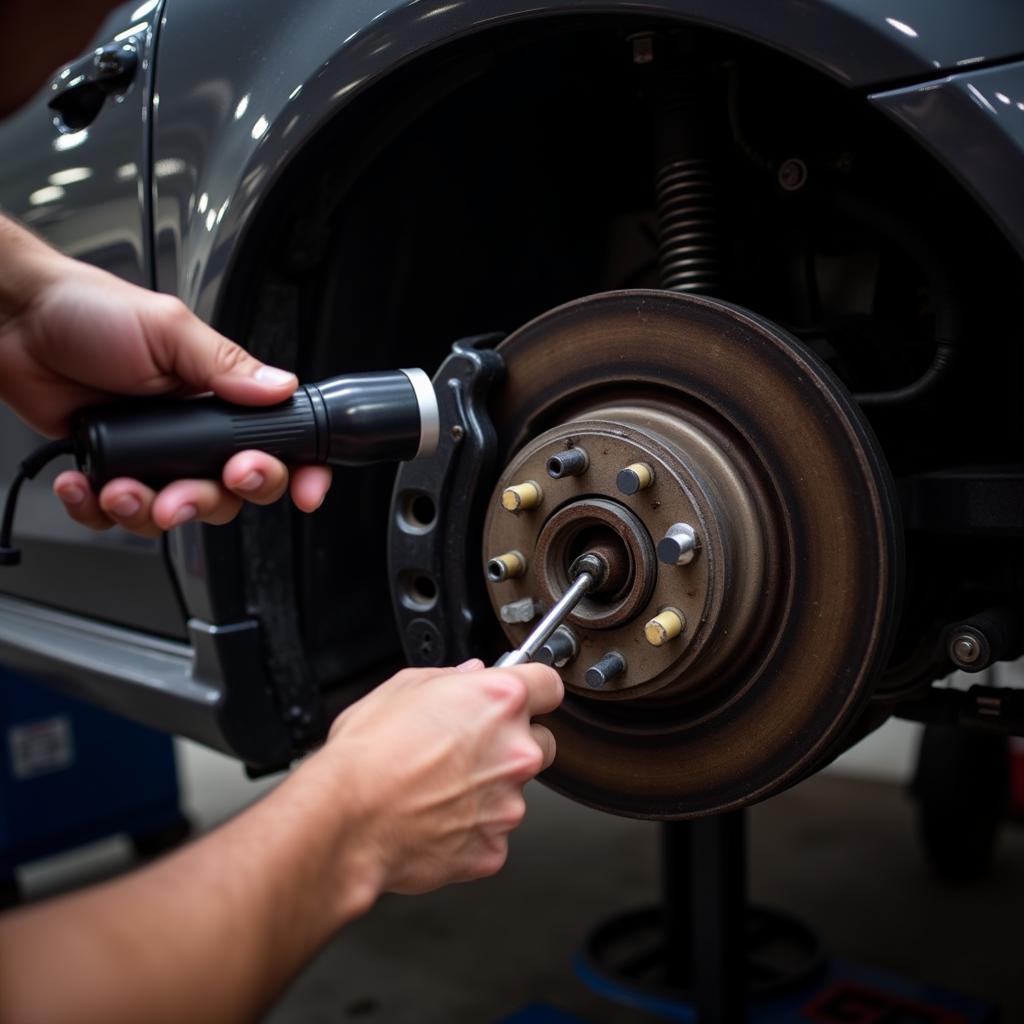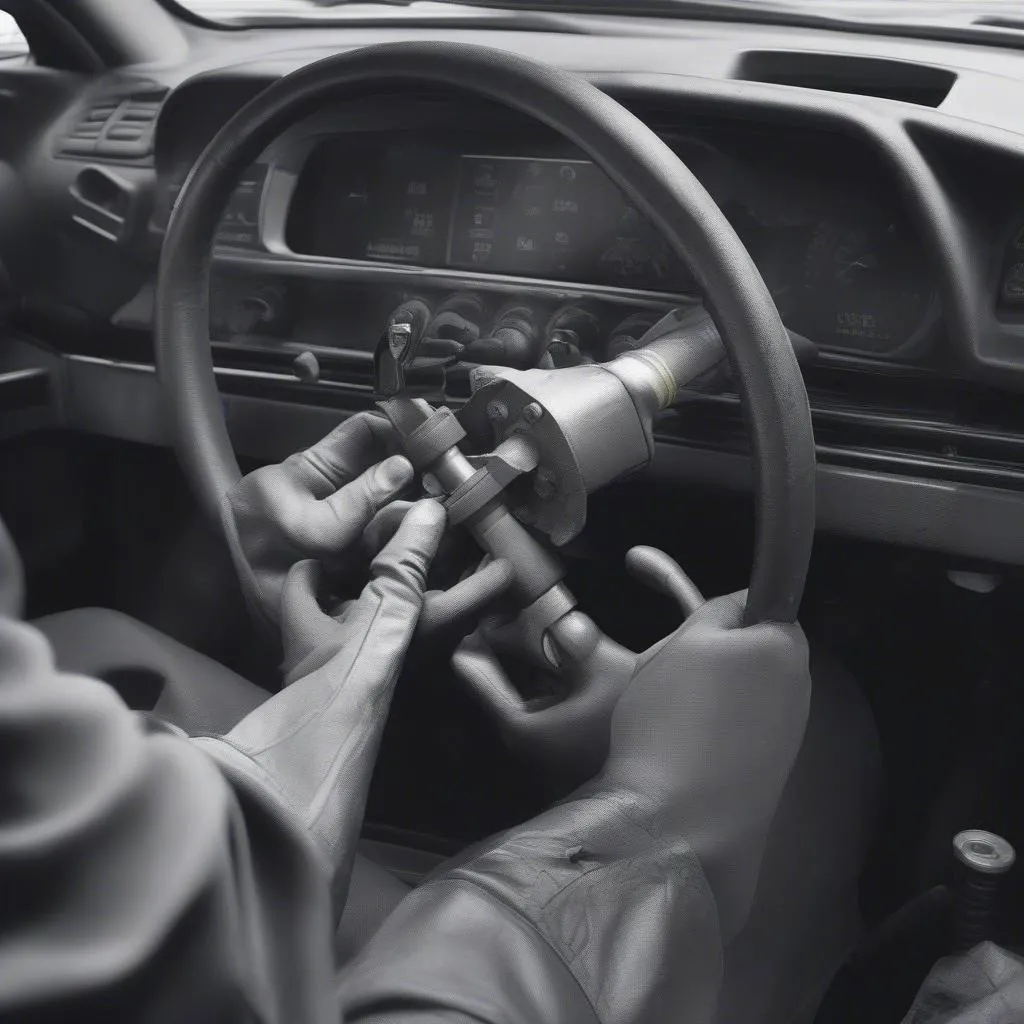Driving down the road and suddenly your low brake fluid warning light flickers on, then disappears as quickly as it came. This frustrating scenario is the hallmark of an intermittent low brake fluid warning light and it can be a sign of several potential issues with your vehicle’s braking system. While it might be tempting to dismiss it as a glitch, ignoring an intermittent low brake fluid warning light can lead to dangerous consequences. This article will guide you through the common causes of this issue and provide solutions to help you get back on the road safely.
Understanding Your Brake System and Warning Lights
Before we delve into the specifics of an intermittent low brake fluid warning light, it’s crucial to understand the basics of your car’s braking system. Your car’s braking system is hydraulic, meaning it uses brake fluid to transmit force from the brake pedal to the wheels, slowing or stopping your vehicle. The brake fluid level sensor plays a critical role in this system. It constantly monitors the amount of fluid in the reservoir and triggers the warning light on your dashboard when the level drops below a safe threshold.
Common Causes of an Intermittent Low Brake Fluid Warning Light
An intermittent low brake fluid warning light suggests an underlying issue that requires attention. Here are some common culprits:
1. Worn Brake Pads
As brake pads wear down, the brake calipers need to extend further to engage the rotors. This extension requires more brake fluid, causing the level in the reservoir to drop. If your warning light appears intermittently, particularly when applying the brakes, worn brake pads could be the culprit.
2. Brake Fluid Leak
A leak anywhere in the brake system, including the master cylinder, brake lines, hoses, or calipers, can cause a drop in brake fluid level. This drop might be gradual, leading to an intermittent warning light.
3. Failing Brake Fluid Level Sensor
The brake fluid level sensor itself can malfunction. A faulty sensor might send false signals, causing the warning light to illuminate intermittently even when the fluid level is adequate.
4. Air in the Brake Lines
Air trapped in the brake lines can compress, leading to inconsistent brake pedal feel and potentially triggering the low brake fluid warning light intermittently. This issue often arises after brake work, such as replacing brake pads or calipers.
5. Issues with the Brake Master Cylinder
The brake master cylinder is responsible for generating the hydraulic pressure required for braking. If the master cylinder is failing internally, it can cause a drop in brake fluid level and trigger the warning light intermittently.
Diagnosing the Problem
Accurately diagnosing the root cause of an intermittent low brake fluid warning light is crucial for effective repair. Here’s a step-by-step guide:
- Check the Brake Fluid Level: With the engine off, open the hood and locate the brake fluid reservoir. The reservoir is typically translucent with a “Min” and “Max” marking. Visually inspect the fluid level.
- Inspect for Leaks: Carefully examine the area around the master cylinder, brake lines, hoses, and calipers for any signs of leaks. Look for wet spots, drips, or puddles of brake fluid.
- Inspect Brake Pads: If you suspect worn brake pads, remove a wheel to visually inspect the pads. If the friction material is significantly worn, replacement is necessary.
 Mechanic Inspecting Brake Pads
Mechanic Inspecting Brake Pads
When to Seek Professional Help
While some causes of an intermittent low brake fluid warning light, such as worn brake pads, can be addressed with basic mechanical skills, others require the expertise of a qualified mechanic. If you are unsure about any aspect of diagnosing or repairing your brake system, it is crucial to seek professional assistance. Remember, your brakes are critical for your safety and the safety of others on the road.
Prevention and Maintenance Tips
Preventing brake issues is always preferable to dealing with them after they arise. Here are some preventative measures:
- Regular Brake Fluid Flushes: Consult your vehicle’s owner’s manual for the recommended brake fluid flush interval, and adhere to it diligently. Fresh brake fluid helps maintain optimal braking performance and can prevent internal corrosion within the system.
- Routine Brake Inspections: Incorporate a visual brake inspection into your regular vehicle maintenance routine. Look for signs of wear, leaks, or damage.
Conclusion
An intermittent low brake fluid warning light, while potentially frustrating, should never be ignored. Addressing the underlying issue promptly is vital to ensure your safety and the optimal performance of your vehicle’s braking system. By understanding the common causes, knowing how to diagnose the problem, and prioritizing preventative maintenance, you can keep your brakes in top condition and enjoy peace of mind on the road. Remember, when it comes to your car’s braking system, erring on the side of caution is always the safest course of action.

